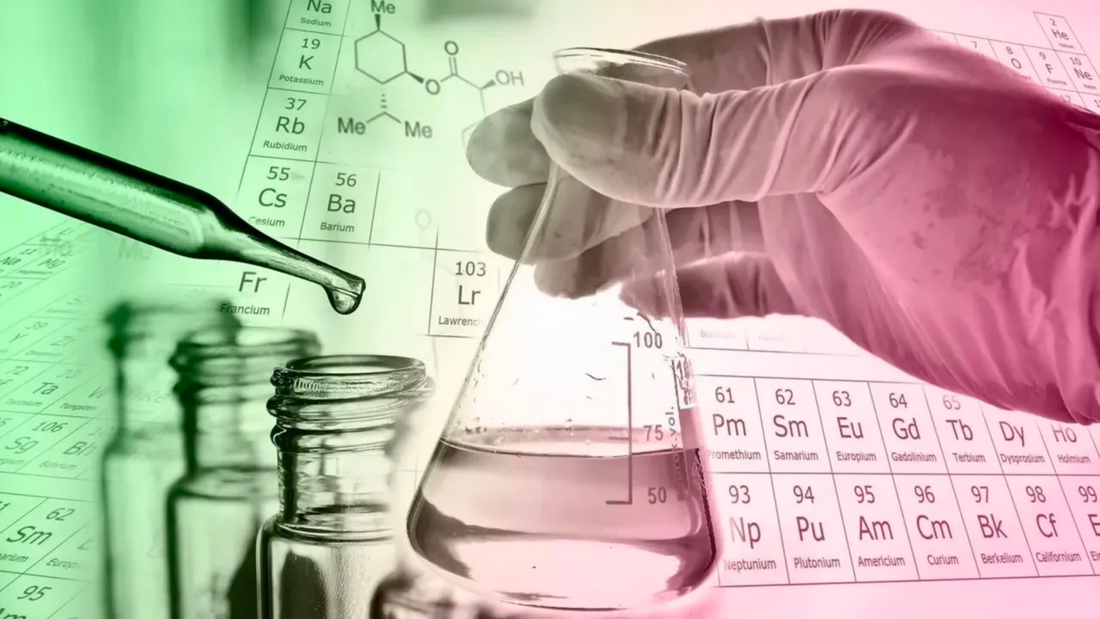by Michael Lorence (https://linktr.ee/melorence1) and Emerson Bossi (bossiwriter.com/)
Our mission at Flex Cosmetics is to provide a reliable way for DIY enthusiasts and aspiring entrepreneurs to experiment and bring their ideas and passions to life by creating personal care products. And to achieve this, we'll elaborate on the advantages of using a professional laboratory to enhance your product.
Advantages of Using a Laboratory
Using a laboratory means the project can take advantage of perks like proper formula documentation, solidified production, better control over variables, and reduced risk during production. The rigorous procedures used in laboratories can also spot flaws in the product, allowing for early adjustments that increase the overall efficacy and avoid those faulty products reaching the customer's hands.
Our customers bring us great ideas all the time, and we do our best to use all resources and tools available to us to bring their ideas to life in the most efficient way. While DIY products have their draw, we strongly recommend using precise laboratory equipment to improve the quality, avoid contamination, increase precision, and solidify the sustainability of your products, which is especially important when scaling up production.
Benefits of a Laboratory Controlled Environment
Understanding the exact benefits of a laboratory-controlled environment is essential. This way, you can better visualize applications, improvements, and advantages for your product. We'll elaborate on some of these advantages and how they can impact the development of personal care products.
Product Contamination and Chemical Impurity
Developing personal care products using DIY setups often runs into material or environment contamination, leading to several issues that negatively affect formula purity. This contamination often leads to a worse formula, negatively impacts the final product's quality, and makes reproduction less stable, increasing the chance of chemical mishaps during production.
A lab-controlled environment is built in a way that mitigates most types of contaminants you usually find in DIY workshops, resulting in superior products.
Superior Laboratory Precision
If you're looking for precision, professional calibrations are vital. They're a feature consistent with laboratory-controlled environments that make all the difference when isolating variables.
Laboratories employ expert personnel who produce high-quality notes about the whole experiment and produce detailed and in-depth documentation that results in refined formula documentation. Well-made documentation is critical when making large-scale batches, mitigating risks, errors, eliminating guesswork, and significantly streamlining the production of personal care products.
Reliability of Standardized Equipment and Tools
The reliability of standardized laboratory equipment ensures that any issues during production are isolated and troubleshooting is much faster, as laboratories have access to high-quality, expensive equipment not found in DIY workshops. In addition, this specialized equipment can handle the precise dispensing and handling of material.
Using better tools allows for the creation of detailed documentation of formulas built or manufactured in a laboratory. This process makes reproducing formulas easier, more reliable, and efficient, making for a cleaner final product.
Laboratory Sanitation
Laboratories have a carefully built and maintained controlled environment, built with the proper hardware, like easy to sanitize benches, making sanitizing between each experiment faster and effective. And the time saved can be spent on reducing the risk of product contamination, leading to greater efficiency in research and lower development time.
Limited Variables
Limiting variables is essential when working with chemical products. The greater reliability and efficiency found in laboratory-controlled environments from sanitation, precision, mitigation of contamination, and impurity significantly limit variables. Reducing the number of variables also reduces the odds of experiment failure or possible issues during production scaling.
This greater control is key to efficiency in production. If any issue arises during production, the limited variables make it faster to pinpoint, troubleshoot and solve any problem.
Increase Efficacy
Developing personal care products in the laboratory ensures greater precision with superior equipment and the expertise of trained professionals. This results in better products, richer emulsions, homogenous blends, and precise activity levels, resulting in a more efficient final product both at small and large scale.
Personal products that pass all laboratory tests and scrutiny are undeniably better. Emulsions can become much lighter on the skin, complex blends can be made more stable, and more importantly, you can be exact with the activity levels and the balance of components, ensuring your product works as intended. These top-of-the-line products can better serve the necessities of customers, generating returning sales.
Extend Stability
All the techniques, procedures, note-taking, documentation, and careful manufacturing makes for very stable products, reducing the risk of customer dissatisfaction. Additionally, laboratory-controlled environments have the tools necessary to run several tests on the product's quality, stability, and integrity, helping catch issues early and ensuring that quality standards are met.
Create New Products Out of Failed Trials With Expert Input
While failed experiments can be frustrating, working in a laboratory-controlled environment allows you to understand better why a product failed and use its formula and documentation to pave the way to new and innovative products.
There's plenty of opportunity in failure. Even completely ruined experiments can lead to interesting, groundbreaking, or trendy products. For example, color mishaps can be well-received as a trendy new feature, incorrect chemical characteristics can lead to the creation of entirely new products, and even an unstable emulsion can become a popular two-phase mist on the next collection.
Of course, all of this is only possible due to the expertise of trained professionals, extensive notes, and detailed documentation. Developing in a laboratory saves you time and resources in the long run due to the ease of recycling past experiments and the faster development.
Conclusion
When working with DIY products, it's essential to scale your project with sustainability and security. We believe the best way to attain sustainable production is to enlist a laboratory-controlled environment and expert professionals, which carefully document your formula.
A personal care product built in a laboratory won't be affected by typical environmental contamination, subpar materials, and amateur tools. Developing in the laboratory ensures your product will be the best version, guaranteeing maximum efficacy, stability, and safety.

